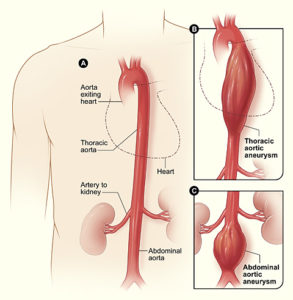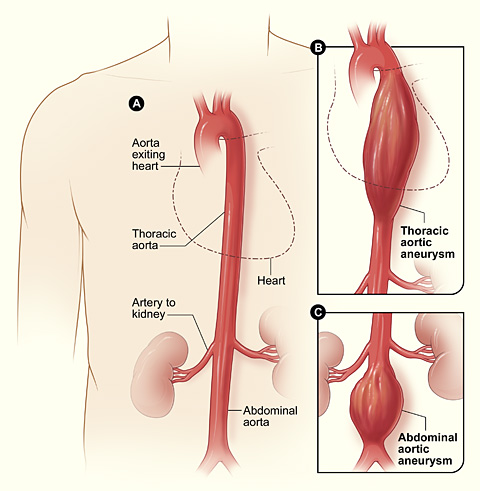
A U.S. Food and Drug Administration (FDA) review found that fluoroquinolone antibiotics can increase the occurrence of rare but serious events of ruptures or tears in the main artery of the body, called the aorta. These tears, called aortic dissections, or ruptures of an aortic aneurysm can lead to dangerous bleeding or even death. They can occur with fluoroquinolones for systemic use given by mouth or through an injection.
According to the FDA, health professionals should avoid prescribing fluoroquinolone antibiotics to patients who have an aortic aneurysm or are at risk for an aortic aneurysm, such as patients with peripheral atherosclerotic vascular diseases, hypertension, certain genetic conditions such as Marfan syndrome and Ehlers-Danlos syndrome, and elderly patients. Prescribe fluoroquinolones to these patients only when no other treatment options are available. Advise all patients to seek immediate medical treatment for any symptoms associated with aortic aneurysm. Stop fluoroquinolone treatment immediately if a patient reports side effects suggestive of aortic aneurysm or dissection.
Patients should seek medical attention immediately by going to an emergency room or calling 911 if you experience sudden, severe, and constant pain in the stomach, chest or back. Be aware that symptoms of an aortic aneurysm often do not show up until the aneurysm becomes large or bursts, so report any unusual side effects from taking fluoroquinolones to your health care professional immediately. Before starting an antibiotic prescription, inform your health care professional if you have a history of aneurysms, blockages or hardening of the arteries, high blood pressure, or genetic conditions such as Marfan syndrome or Ehlers-Danlos syndrome. If you have been prescribed a fluoroquinolone to treat an infection, do not stop the antibiotic without first talking to your health care professional.
For a list of trade names go here. There are many common antibiotics listed here including,
Alumofloxacin, Amifloxacin, Ciprofloxacin, Moxifloxacin, Norfloxacin and Trovafloxacin

